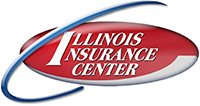Let’s Talk About Re-Evaluating Your Auto Insurance
If we’re being honest, most people only think about their car insurance when something bad happens. But waiting until an accident isn’t the time to find out you don’t have the right coverage. That’s why re-evaluating your auto insurance regularly can make a big difference in your protection—and your wallet.
Here at Illinois Insurance Center, we’ve helped thousands of drivers throughout Illinois review their coverage and save money while staying protected. Whether you drive through downtown Chicago or take quieter roads in Naperville or Joliet, it’s worth asking yourself a few simple—but important—questions.
1. Re-Evaluating Your Auto Insurance: Do You Still Need Collision or Comprehensive?
Let’s start with the basics. Illinois law requires liability insurance. That covers injuries or damages you cause to others, not your own car. The minimums are:
-
✅ $25,000 for one person’s injuries
-
✅ $50,000 for injuries to multiple people
-
✅ $20,000 for property damage
But what about your own car? That’s where collision and comprehensive insurance come in. Collision pays for damage from an accident. Comprehensive covers things like theft, vandalism, hail, or fire.
Now, think about this: if your car is older, and your deductible is close to or higher than your car’s value, it might not be worth keeping that extra coverage. On the flip side, if you just financed a new car in Rockford or Joliet, you probably need both.
Not sure what your car is worth or if you’re paying for something you no longer need? That’s exactly what we help with every day at Illinois Insurance Center.
2. Re-Evaluating Your Auto Insurance: Are Your Liability Limits High Enough?
Many people stick with the state minimums. And yes, they technically keep you legal. But will they protect your savings if something serious happens?
Let’s say you hit another car in Aurora and cause $100,000 in injuries. If your policy only covers $25,000, you’re responsible for the other $75,000. That can turn into wage garnishments, lawsuits, and major financial stress.
Raising your liability limits often costs just a few bucks more each month. It’s one of the smartest moves you can make.
We also like to talk about umbrella insurance with clients who own homes, have savings, or run businesses. An umbrella policy gives you extra coverage—usually starting at $1 million—when your auto or home policy isn’t enough. It’s worth considering, especially if you’ve already talked to us about homeowner’s insurance in Chicago or business insurance in Naperville.
3. Re-Evaluating Your Auto Insurance: Have Your Life Circumstances Changed?
Life moves fast, and your insurance should keep up. Here are just a few changes that can affect your car insurance:
-
✅ Got married or divorced? Your marital status can affect your premium.
-
✅ Added a teen driver in Rockford? That usually bumps rates up—but we’ll help you find every available discount.
-
✅ Switched vehicles or added a second car in Chicago? Time to update your policy.
-
✅ Moved into a new home or condo in Aurora? That may also qualify you for a bundle discount.
-
✅ Diagnosed with a health condition that affects driving? You’ll want to talk to us directly about how it could impact your coverage.
Whenever something changes in your life, it’s worth re-evaluating your auto insurance with us. We’ll make sure your coverage still makes sense and your rates are as low as possible.
4. Re-Evaluating Your Auto Insurance: Are You Missing Out on Discounts?
Nobody wants to overpay for insurance. Thankfully, there are more ways than ever to get a discount. Here are a few:
-
✅ Bundle Your Policies: If you have home or renters insurance, consider bundling. Our clients in Joliet often save money by combining auto and homeowners insurance under one policy. Check out our Homeowners Insurance page to learn more.
-
✅ Multiple Cars?: If your household has more than one vehicle, ask us about multi-car discounts. This is common in families with teens or couples with separate vehicles.
-
✅ Good Student Discount: Got a teenager who’s pulling A’s and B’s? They could help lower your premiums.
-
✅ Safe Driving: A clean record or completing a defensive driving course can qualify you for a good driver discount.
-
✅ Anti-Theft Devices: Live in Chicago and worried about theft? Cars with alarm systems or tracking devices often get a small discount.
We’ll do the digging for you. We can even check if switching carriers would make sense, and we’ll handle the paperwork if it does.
5. Re-Evaluating Your Auto Insurance: Are You Covered for Work Use?
Do you use your car for work, like delivering packages, food, or tools? Personal auto insurance might not cover you in those cases.
We offer Commercial Auto Insurance for clients who use their vehicle for work. It’s common for contractors, delivery drivers, and rideshare operators. If you’re a contractor or own a small business, ask us about Contractor Insurance and Business Insurance too.
We’ll help you figure out whether your car use fits into personal or commercial insurance—and explain the difference in plain language.
Let’s Not Forget About Your Location
Where you live plays a role in your insurance rates. Whether you’re in:
—we can help you figure out the best plan for your area. We work directly with clients throughout Illinois every day and know what plans work best in each neighborhood.
FAQs About Re-Evaluating Your Auto Insurance
1. How often should I re-evaluate my auto insurance policy?
Once a year is a good habit—or anytime you experience a big life change.
2. Will raising my liability limits raise my premium a lot?
Not always. You might be surprised how small the increase is for better protection.
3. Can I drop full coverage if my car is paid off?
If your car is older and worth less than your deductible, it might be worth it. We’ll help you decide.
4. What’s the difference between collision and comprehensive?
Collision covers accidents with another vehicle or object. Comprehensive covers theft, weather, and vandalism.
5. Is bundled insurance really cheaper?
Yes. Many of our clients save money by combining auto, home, and even life insurance.
6. Do I need commercial auto insurance to drive for DoorDash or Uber?
Usually, yes. Personal policies often don’t cover business use. Let’s review it together.
7. Can I get a discount for low mileage driving?
Yes. If you drive less than average, you may qualify for a low mileage discount.
8. Are teen drivers always expensive to insure?
They can be, but there are discounts for good grades, safe driving courses, and more.
9. How do anti-theft devices help with insurance?
They lower the risk of theft, which can mean a lower premium for you.
10. Can I change insurance companies mid-policy?
Absolutely. We can help you make the switch smoothly, even before your current policy ends.
Final Thoughts on Re-Evaluating Your Auto Insurance
Re-evaluating your auto insurance doesn’t have to be complicated or stressful. A few smart questions can save you money and give you better protection. Whether you’re just trying to lower your rates or figuring out how life changes affect your coverage, the team here at Illinois Insurance Center is ready to help.
We’ve been serving Illinois drivers since 1973, and we’re proud to help you get coverage that fits your life. Give us a call at (708) 524-4900 or visit our Contact Page to schedule a free review today.
No pressure. No confusing terms. Just honest advice—and real help.
Let us know if you want to look into bundling options, explore discounts, or make sure your policy still fits your needs. Re-evaluating your auto insurance could be one of the easiest money-saving steps you take this year.
See Also:
- Questions To Ask Before You Purchase Business Insurance
- Liability, Collision, or Both? What You Need to Know About Your Auto Insurance Policy
- Why a Life Insurance Payout Can Be Denied in Illinois
- 4 Things Small-Business Owners Should Know About Life Insurance
- Important Do’s and Don’ts After an Auto Accident





